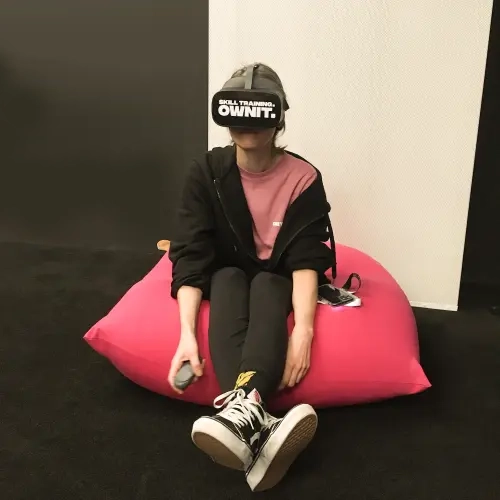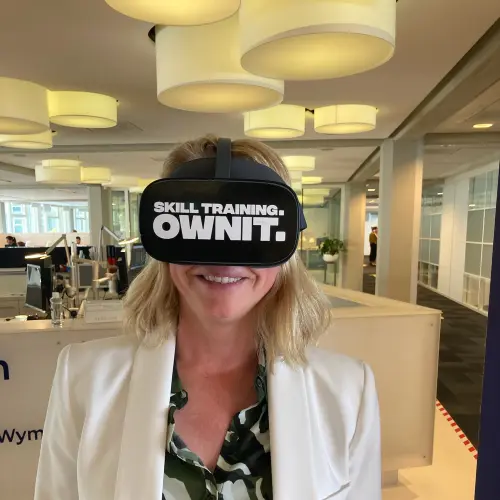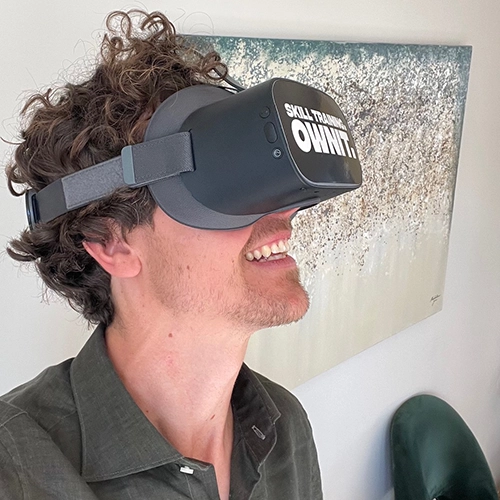Effectiveness of VR Soft Skills Training
Effective soft skills training with VR
A 2020 PWC study regarding the effectiveness of virtual reality-learning versus classroom training and e-learning, shows that V-learners are:
1,5 TIMES MORE FOCUSED
THAN THEIR CLASSROOM PEERS
3,75 TIMES MORE EMOTIONALLY CONNECTED
TO THE CONTENT
4 TIMES FASTER
than classroom training on average
275% more confident
to act on what they learned after training

THE MINDBLOWING RESULTS OF THIS STUDY:
Today’s learners are often impatient, distracted and overwhelmed. With VR learning, users are significantly less distracted. In a VR headset, simulations and immersive experiences command the individual’s vision and attention. There are no interruptions and no options to multitask.
On all fields researched, VR performed up to four times better then traditional ways of learning.
4 TIMES FASTER
What took two hours to learn in the classroom could possibly be learned in only 30 minutes using VR. And that figure only accounts for the time actually spent in the classroom, not the additional time required to travel to the classroom itself. (compared length in minutes)

VR
E-learn
Classroom
3,75 TIMES MORE EMOTIONALLY CONNECTED
V-learners felt 3.75 times more emotionally connected to the content than classroom learners and 2.3 times more than e-learners. People connect, understand and remember things more deeply when their emotions are involved.

%
Classroom
%
E-Learn
%
VR
275% MORE CONFIDENT
When learning soft skills, confidence is a key driver of success. In difficult circumstances, such as having to give negative feedback, people generally wish they could practice handling the situation in a safe environment.
With VR, they can.

Company data
OWNIT BV
Laan van Kronenburg 14
1183AS Amstelveen
+31 (0)20 722 08 82
connect@ownittraining.com


